Disclosure: This article contains affiliate links. We may earn a commission from purchases at no extra cost to you, which helps our travel content.
G'day, fellow wanderers! It's been exactly three years since I first set foot in Botswana's second-largest city, Francistown. But here's the thing – the real magic isn't in the city itself but in the constellation of villages that orbit it. These communities hold the beating heart of Botswana's cultural heritage, largely untouched by the safari tourism machine that dominates other regions. After five visits to this northeastern corner of Botswana, I've learned that with a bit of patience, respect, and my trusty camera, the surrounding villages offer a more authentic glimpse into Batswana life than any packaged tour. This past fall, I spent a week zigzagging through these communities, trading the comforts of city accommodation for homestays and campfires under impossibly starry skies. What follows is my no-frills guide to experiencing the rich tapestry of traditions, crafts, and daily life in the villages surrounding Francistown – all without breaking the bank.
Finding Your Way to the Villages
Francistown serves as your launchpad, but don't linger too long. The surrounding villages – Tonota, Tati Siding, Matshelagabedi, and Borolong – each offer distinct cultural experiences within 10-50km of the city center.
Navigating between these communities requires either hiring a car (pricey but convenient) or embracing the local transport system (budget-friendly but requiring patience). I opted for the latter, using a combination of blue combis (minivans) and shared taxis that depart from the Francistown bus rank. For about 10-20 pula per journey (roughly $1-2 USD), these vehicles will drop you at village centers, though schedules are... well, flexible is the polite term.
Before setting off, I marked village locations on my offline maps app, which proved invaluable when cell service disappeared. The app allowed me to download the entire region and navigate without burning through data or getting properly lost in the bush.
While planning your village circuit, remember that distances can be deceptive. What looks like a quick hop on the map might take hours depending on road conditions and transport availability. I learned this lesson the hard way when a 30km journey to Matshelagabedi stretched into a three-hour adventure involving a combi, a pickup truck, and a memorable walk alongside grazing cattle.
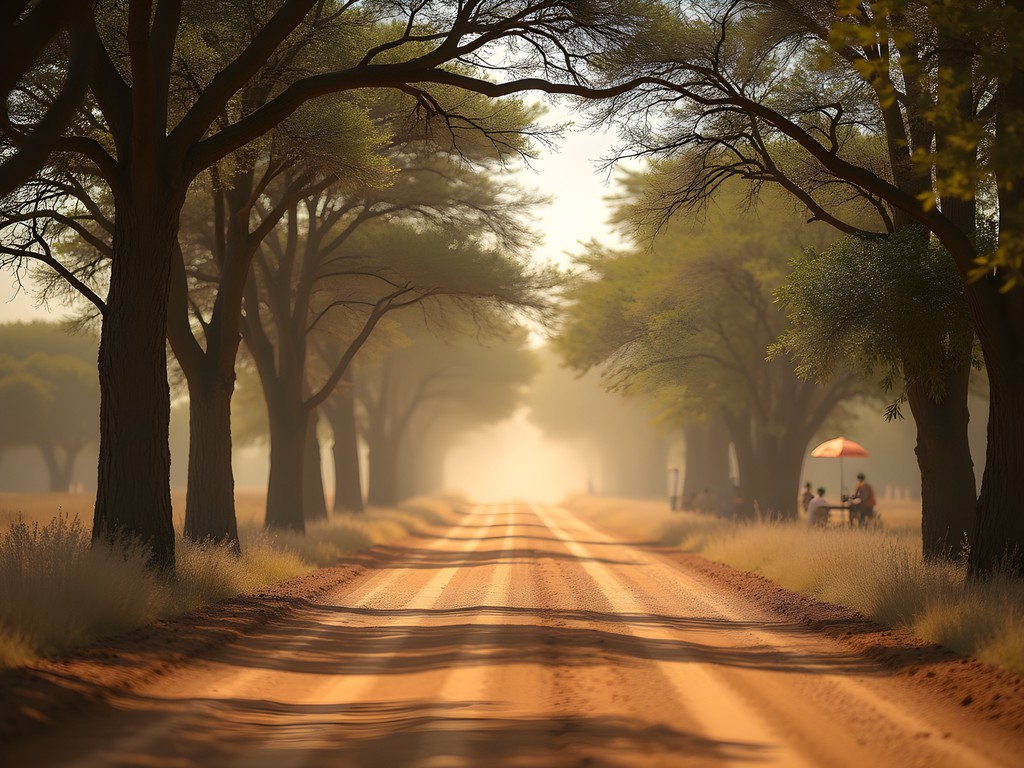
💡 Pro Tips
- Purchase a local SIM card in Francistown before heading to villages (Orange or Mascom offer good coverage)
- Learn basic Setswana greetings – 'Dumela' (hello) and 'Ke a leboga' (thank you) go a long way
- Carry small denominations of pula for transport and purchases in villages where change is scarce
Homestays: The Gateway to Cultural Immersion
Forget hotels. The most profound cultural experiences come from staying with local families, and this is where Botswana truly shines. In villages like Tonota and Borolong, community-based tourism initiatives have created informal homestay networks where families welcome travelers into traditional compounds.
To arrange a homestay, you'll need to visit the village kgotla (community meeting place) and speak with the village chief or representative. This might sound intimidating, but I've found Batswana to be incredibly welcoming once proper respects are paid. In Tonota, I was connected with the Molebatsi family, who hosted me in their compound for three nights at just 200 pula (about $15) per night, including meals.
Living conditions are basic – expect outdoor pit latrines, bucket showers, and sleeping on reed mats in mud-brick rondavels – but the cultural exchange is priceless. During my stay with the Molebatsis, I learned to make bogobe (cornmeal porridge), helped tend to goats, and spent evenings around the fire listening to stories that have been passed down for generations.
Pack light but smart for these stays. My compact sleeping bag proved perfect for chilly fall nights while taking up minimal space in my backpack. I also carried a headlamp, quick-dry towel, and small gifts for host families (photos from previous trips to Botswana were especially appreciated).
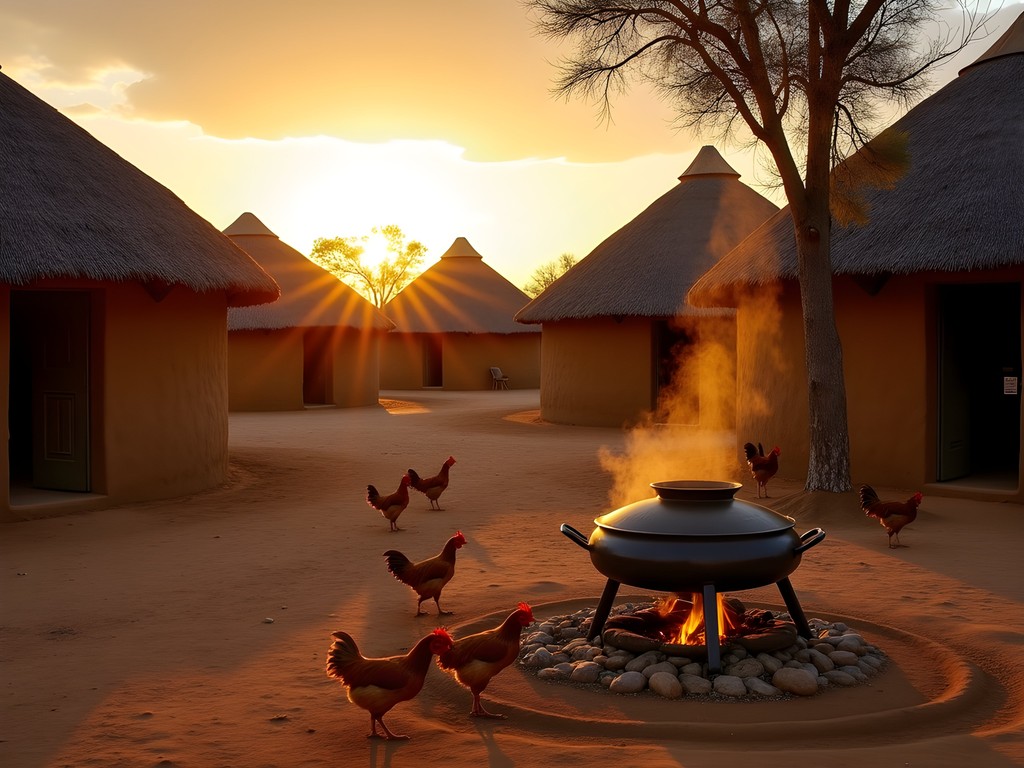
💡 Pro Tips
- Always remove shoes before entering someone's home
- Bring photos of your family and home country – they're excellent conversation starters
- Offer to help with daily chores – it builds rapport and provides insight into daily life
Cultural Rituals and Community Gatherings
Timing your visit to coincide with local events transforms a good trip into an unforgettable one. Fall (April-May in Botswana) brings harvest celebrations in many villages, when communities gather to give thanks for successful crops.
In Tati Siding, I was fortunate to witness a go jwa mabele (sorghum harvest celebration) that few outsiders ever see. The festivities included traditional dancing, drum circles, and a feast that seemed to materialize from nowhere. Women in vibrant skirts moved in perfect synchrony while men performed the intricate footwork of the borankana dance, raising dust clouds that glowed orange in the setting sun.
Accessing these events requires both luck and persistence. Village notice boards sometimes announce upcoming gatherings, but word-of-mouth remains the most reliable source. I make it a habit to visit local shebeens (informal bars) where, over a shared quart of St. Louis lager, locals are often willing to share information about upcoming events.
When attending ceremonies, photography etiquette becomes crucial. My approach is to watch without my camera first, then ask permission from elders before taking photos. Using my telephoto zoom lens allows me to capture candid moments from a respectful distance without disrupting proceedings.
Remember that some rituals may have restrictions for outsiders or prohibit photography entirely. Always respect these boundaries – the memory of being present is more valuable than any photograph.
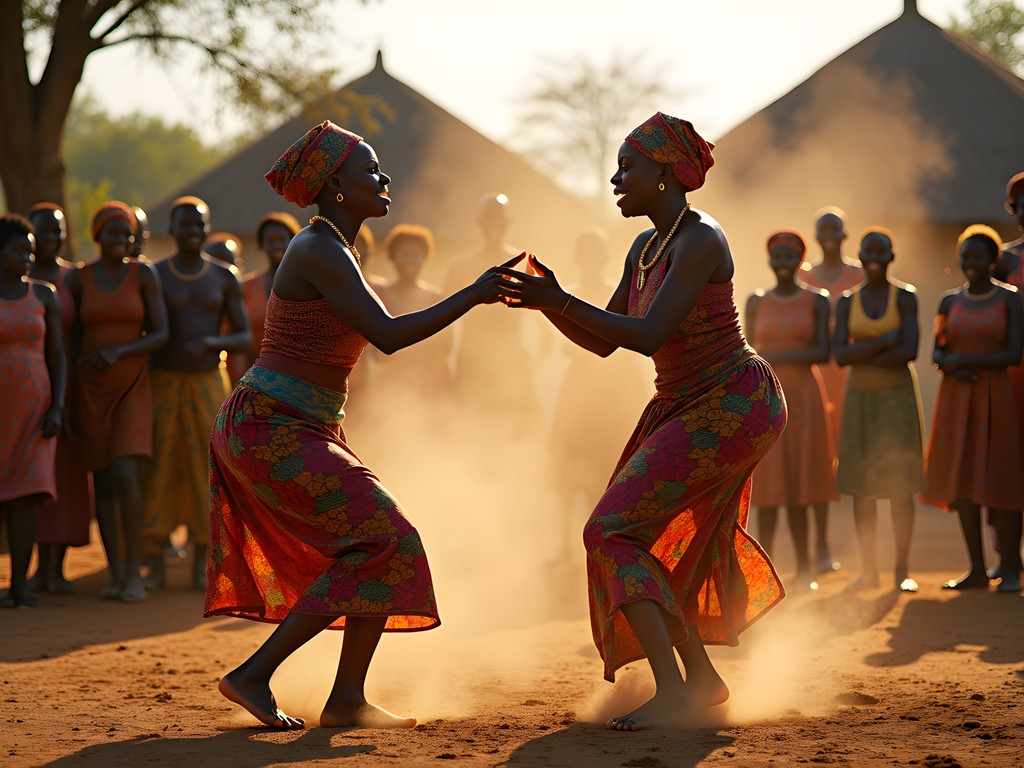
💡 Pro Tips
- Bring a small gift (like tea or sugar) when attending community gatherings
- Dress conservatively – shoulders covered for women, long pants for men
- Wait to be invited before joining in dances or rituals
Craft Traditions: Learning from the Masters
Each village around Francistown specializes in different traditional crafts, creating a rich tapestry of artistic expression. In Tonota, I spent a day with basket weavers who create intricate patterns using natural dyes and palm fibers. The geometric precision rivals anything I've studied in design school, yet these artisans work without formal training, passing techniques through generations.
Matshwane village, about 40km east of Francistown, is known for pottery made using techniques unchanged for centuries. For a small fee (around 50 pula), I joined a morning workshop where Mma Dintwe, a master potter in her seventies, demonstrated how to prepare clay, form traditional vessels, and fire them in an open pit. My attempts were laughably lopsided, but the experience gave me profound appreciation for the skill involved.
In Borolong, woodcarvers transform hardwood from mopane trees into everything from practical tools to expressive sculptures. The distinctive smell of wood shavings and the rhythmic sound of carving tools created a meditative atmosphere as I watched master carver Rra Tshukudu transform a block of wood into a graceful impala.
What makes these experiences special is their authenticity – these aren't performances for tourists but genuine continuations of living traditions. I document these crafts using my compact mirrorless camera, which allows me to capture detailed close-ups of hands at work without lugging heavy equipment through the heat.
When purchasing crafts directly from artisans (which I highly recommend), expect to pay with cash and don't be afraid to spend time chatting before discussing prices. The stories behind the pieces add immeasurable value to your souvenirs.
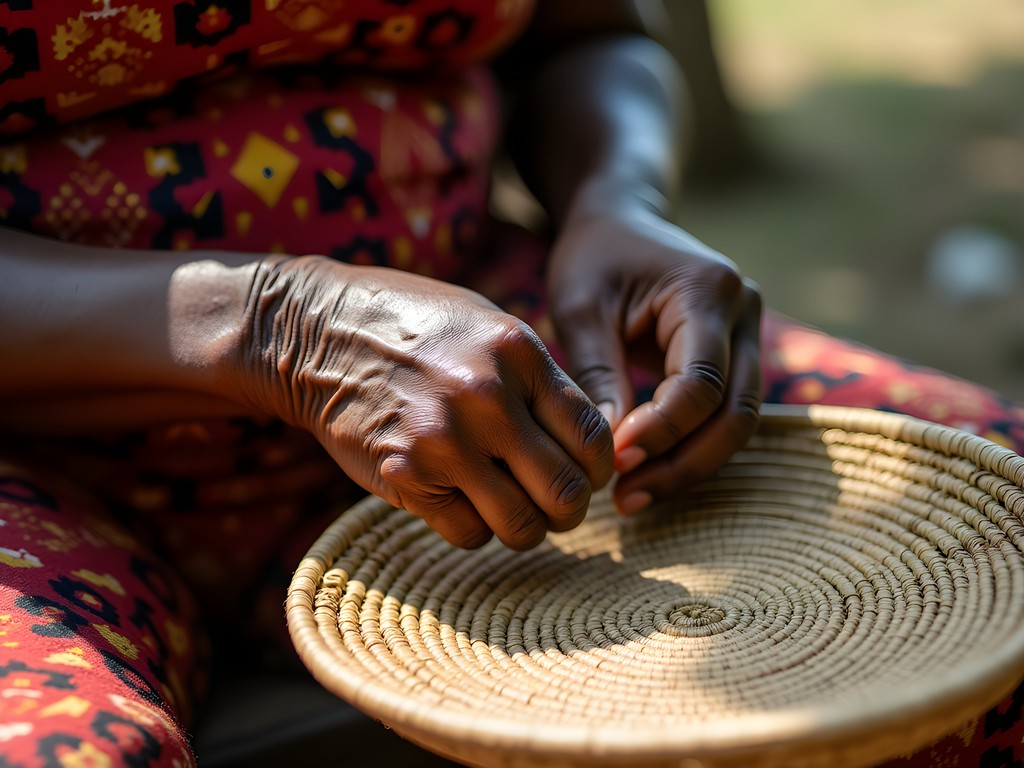
💡 Pro Tips
- Ask permission before photographing artisans at work
- Learn about the symbolism in patterns and designs – each has meaning
- Budget extra space in your luggage for unique handcrafted souvenirs
Wildlife and Natural Connections
While the Francistown area doesn't offer the concentrated wildlife viewing of the Okavango Delta, the surrounding villages maintain deep connections with the natural world that provide unique perspectives for wildlife enthusiasts.
In Matshelagabedi village, I joined a morning walk with local trackers who can read the landscape like a newspaper. Within hours, they had pointed out serval cat tracks, identified over a dozen bird species by call alone, and showed me which plants serve as natural medicines. This knowledge, accumulated over countless generations, offers insights no guidebook can provide.
The Tati River area near Francistown hosts impressive bird life, particularly during fall migration. Early mornings along the riverbanks revealed African fish eagles, malachite kingfishers, and hamerkops constructing their massive nests. I always pack my compact binoculars for these outings – they're lightweight enough for all-day carrying but powerful enough to spot distant wildlife.
For those interested in conservation, the Tachila Nature Reserve just outside Francistown offers community-led wildlife protection initiatives where visitors can learn about human-wildlife conflict resolution and habitat restoration. The modest 50 pula entrance fee supports local conservation efforts.
What makes wildlife experiences here special is the cultural context. Rather than viewing animals as photo opportunities, village guides share traditional stories about each creature's significance. I learned that the hornbill isn't just a bird but a messenger in local folklore, and that certain antelope movements are believed to predict weather changes. These perspectives add layers of meaning to wildlife encounters that you simply won't find on commercial safaris.
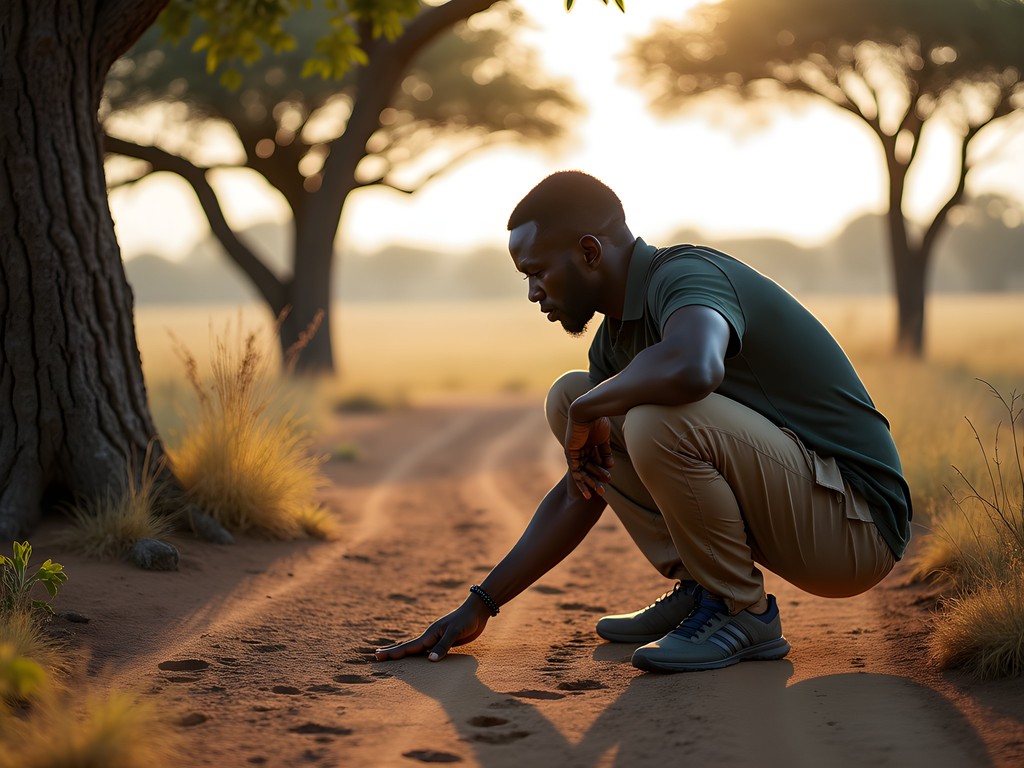
💡 Pro Tips
- Wake early (5-6am) for the best wildlife viewing opportunities
- Hire local guides directly through village leadership rather than through hotels
- Learn about traditional conservation practices that have protected species for generations
Food as Cultural Exchange
If you want to understand a culture, share their meals. In Botswana's villages, food isn't just sustenance – it's a social institution, and mealtimes provided my deepest connections with local communities.
In Tonota, I was invited to join a traditional seswaa preparation. This pulled beef dish is Botswana's national food, cooked slowly over an open fire until tender enough to shred with wooden spoons. The process takes hours, during which stories flow as freely as the sweet tea served throughout the afternoon. The final dish – served with bogobe (sorghum porridge) and morogo (wild spinach) – was worth every minute of waiting.
Matshelagabedi village introduced me to mophane worms, a protein-rich caterpillar that's harvested from mophane trees, dried, and rehydrated for cooking. I won't lie – the first bite was a challenge for this Aussie palate, but by the third worm, I was detecting subtle nutty flavors that were genuinely enjoyable. Food adventures like these break down barriers faster than any conversation.
Village shebeens (informal bars) offer another avenue for cultural exchange. In Borolong, I spent an evening at a local spot where homemade sorghum beer is served in communal containers. The bitter, slightly sour brew isn't for everyone, but sharing it created instant camaraderie with the farmers and craftspeople unwinding after a day's work.
For those with sensitive stomachs, I recommend carrying basic medications and a water purification system. This bottle has saved me countless times in remote areas where water quality is questionable, filtering out bacteria while reducing plastic waste from buying bottled water.
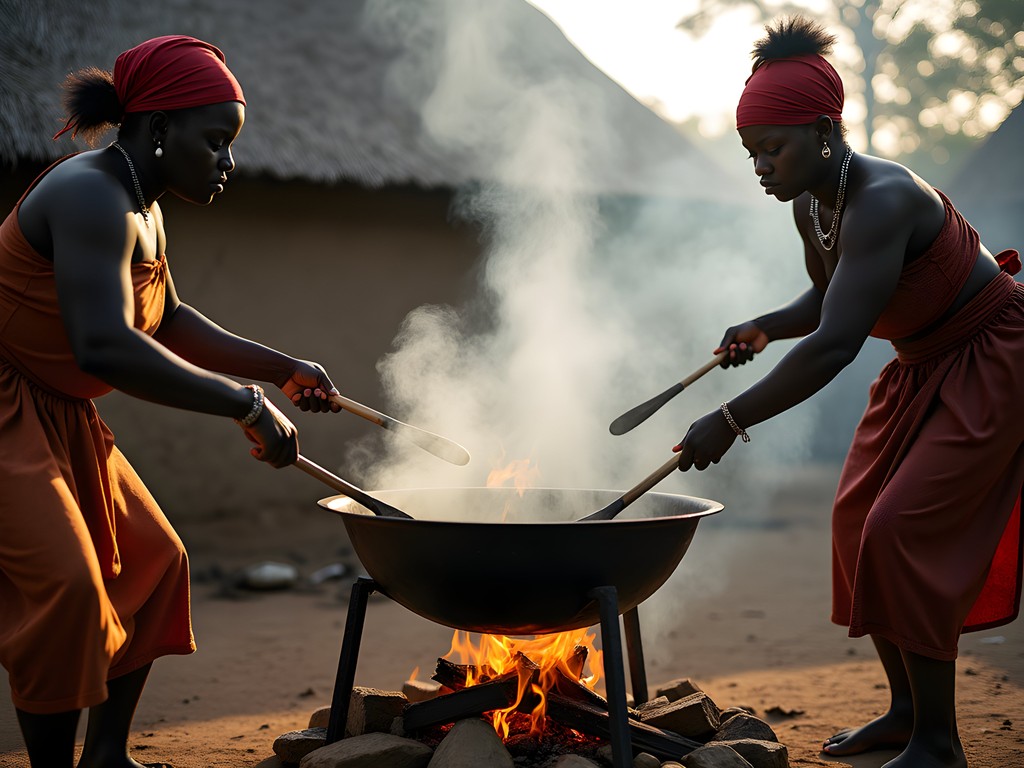
💡 Pro Tips
- Always eat what's offered in someone's home – refusing food is considered impolite
- Use your right hand for eating from communal dishes
- Bring non-perishable food gifts (coffee, spices) when staying with families
Final Thoughts
As I packed my dusty boots and memory cards full of images for the journey back to Francistown, I couldn't help reflecting on the stark contrast between these village experiences and the packaged safari tourism that dominates Botswana's travel industry. The villages surrounding Francistown may lack luxury accommodations and Instagram-famous wildlife sightings, but they offer something far more valuable – genuine human connection and cultural traditions that have survived centuries of change. This isn't always an easy travel experience; you'll need patience, cultural sensitivity, and a willingness to step far outside your comfort zone. But for those willing to embrace the challenges, these villages reveal a Botswana that few outsiders ever truly see. So next time you're planning that African adventure, consider looking beyond the safari circuit. The real heart of Botswana is beating in the villages, waiting for those willing to listen.
✨ Key Takeaways
- Village visits require patience and cultural respect but offer authentic experiences impossible to find on packaged tours
- Homestays provide deeper cultural immersion than any hotel could offer
- Learning a few Setswana phrases opens doors to meaningful connections
- Traditional crafts, food, and ceremonies reveal cultural values that have survived centuries
📋 Practical Information
Best Time to Visit
April-May (fall) or September-October (spring)
Budget Estimate
$30-50 USD per day including homestays, food and local transport
Recommended Duration
5-7 days minimum
Difficulty Level
Challenging

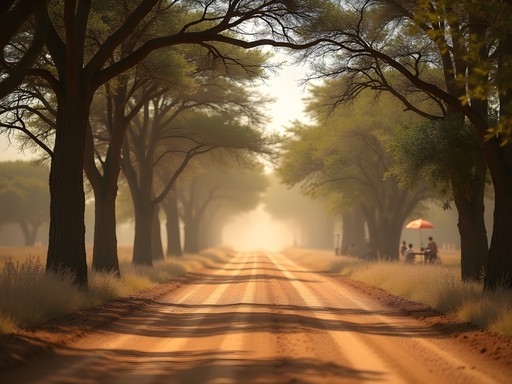
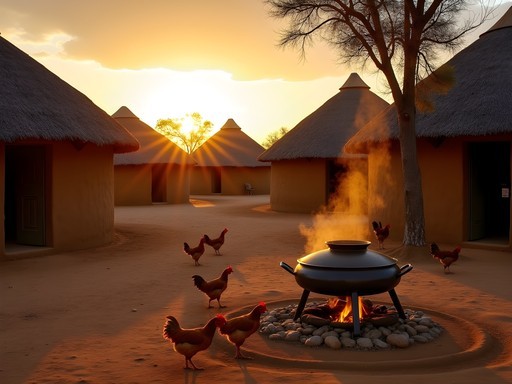
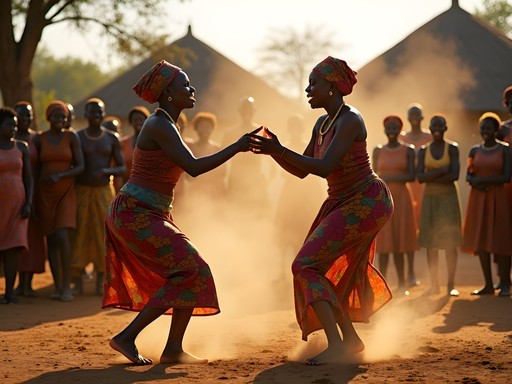
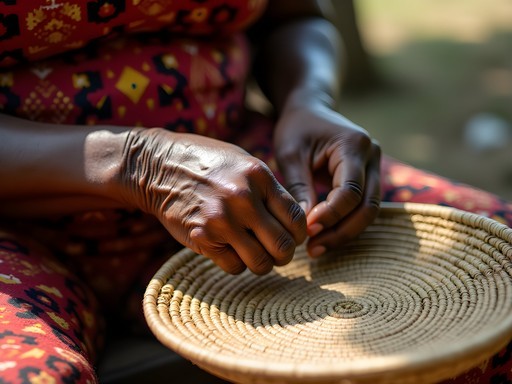
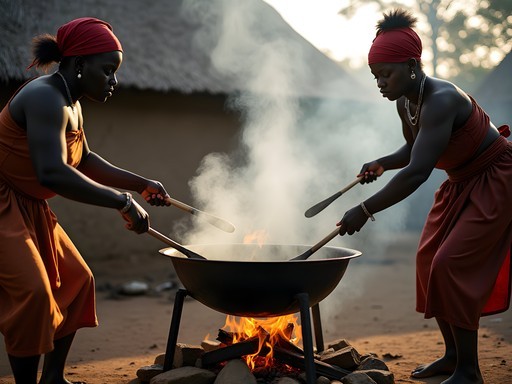


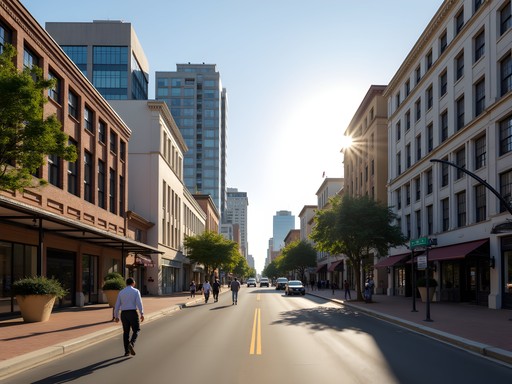
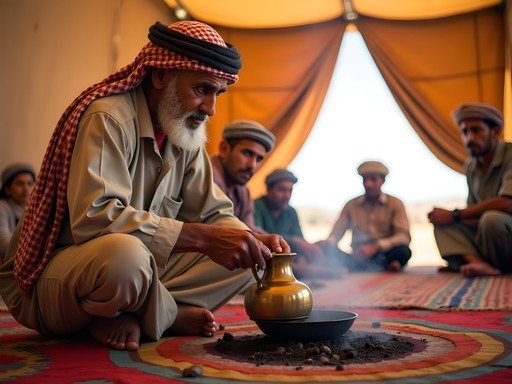
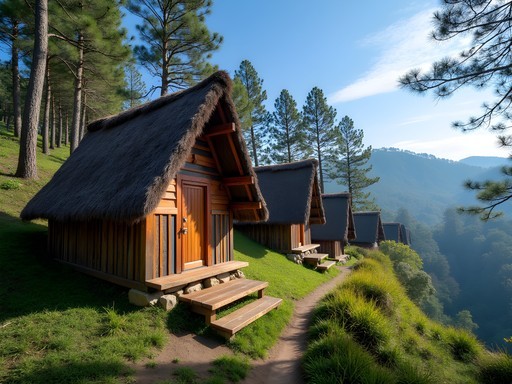
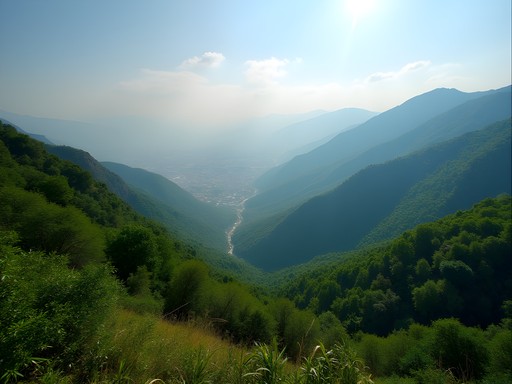

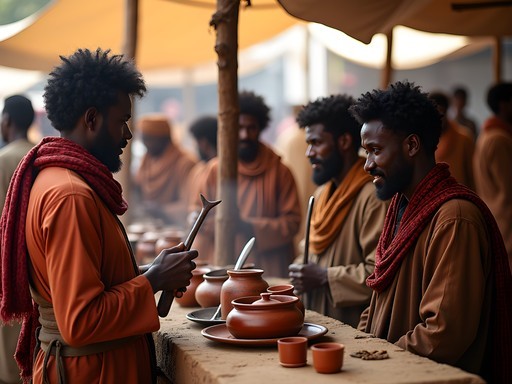
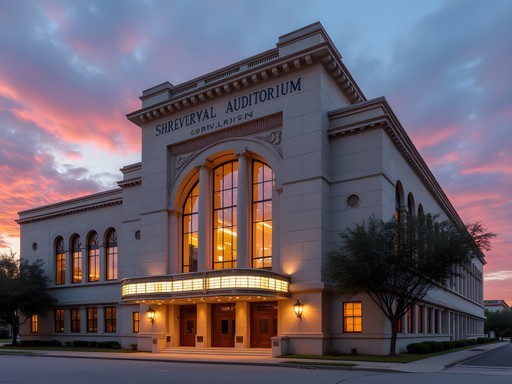
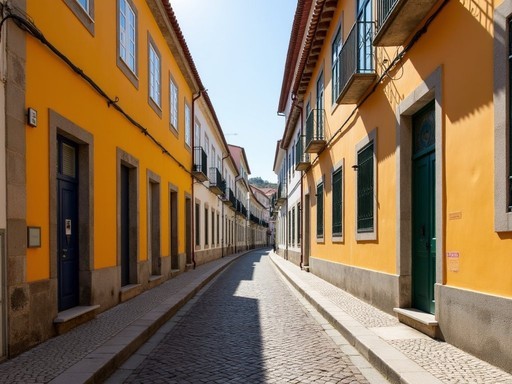
Comments
Taylor Moreau
Gregory, excellent piece on the homestay experiences. I'm planning a research trip to southern Africa in March and would love to incorporate something similar. Could you share more details about how you arranged the homestays? Did you work through a local coordinator or contact families directly? Also curious about the typical duration - you mentioned three years since your first visit, but how long would you recommend staying in each village for a meaningful experience without overstaying as a guest?
Gregory Olson
Hi Taylor! I worked with a local coordinator in Francistown who has family connections in several villages. Much easier than arranging directly. I'd say 3-4 days per village is the sweet spot - enough time to participate in daily life without being a burden. Happy to share contact details if you DM me.
Taylor Moreau
That would be brilliant, thank you. I'll send you a message.
journeyadventurer
This sounds amazing!! Adding to my bucket list
Gregory Olson
Thanks! You won't regret it mate, the villages are truly special
smartclimber
Those craft traditions look amazing! Did anyone try the pottery making?
sunnywalker
I visited Tonota village after reading your post and it was the highlight of my Botswana trip! The pottery workshop was incredible - my lumpy bowl now sits proudly on my shelf at home. The family I stayed with cooked traditional seswaa and showed me how to pound sorghum. Much more memorable than just staying in Francistown. Thanks for the inspiration!
Gregory Olson
So glad you had that experience! There's nothing like hands-on cultural immersion. Your comment made my day!
wavechamp
OMG this is EXACTLY what I've been looking for!!! Going to Botswana in April and definitely want to escape the tourist traps. How was the public transportation between villages? Safe for solo female travelers?
sunnywalker
I did this as a solo female last year! The kombis (minibuses) are crowded but safe. Just keep valuables close. The people are incredibly kind and protective of visitors.
wavechamp
That's so reassuring, thank you! Did you stay overnight in the villages too?
sunnywalker
Yes, three different homestays! Bring a small gift for your host family - school supplies or photos from home work well.
sunsetlife
Those craft traditions look amazing! Love the pottery photos.
Hunter Thompson
Mate, this brings back memories! I spent two weeks in those villages last year and it was properly life-changing. The basket weaving workshop in Tati Siding was brilliant - the elder who taught me kept laughing at my pathetic attempts but was so patient. Did you try the traditional sorghum beer? That stuff knocked me sideways! I found bringing small photos of my hometown to share with host families was a great ice-breaker. They were fascinated by pictures of Newcastle in the rain, haha! Definitely bringing my pocket translator next time though - would've made some conversations easier.
wavechamp
Photos as gifts is such a good idea! Definitely stealing that for my trip.
sunnylife
This is exactly the kind of experience I'm looking for! How did you arrange the homestays? Did you book in advance or just show up?
Gregory Olson
I arranged most through a local guide in Francistown, but a couple were spontaneous. The key is flexibility - having a contact helps but being open to last-minute changes is essential!
sunnylife
Thanks for the tip! Did language barriers cause any issues?
Gregory Olson
Some, but most hosts knew basic English. I found learning a few Setswana phrases went a long way. Smiles and hand gestures did the rest!
AfricaDreamer
We did the public transportation too and it was great! Those minibuses are an adventure themselves lol
wildhero
Any tips on cultural etiquette? I don't want to accidentally offend anyone when I visit next month.
Douglas Bradley
Always greet elders first and with both hands (right hand supported by left). Ask before taking photos of people. Bring small gifts if visiting homes (tea is appreciated). When eating communally, wash hands in the provided water bowl. And learn basic Setswana greetings - 'Dumela' (hello) goes a very long way!
wildhero
Thanks so much! Will definitely practice those greetings before I go!
Venture X
Premium card with 2X miles, $300 travel credit, Priority Pass